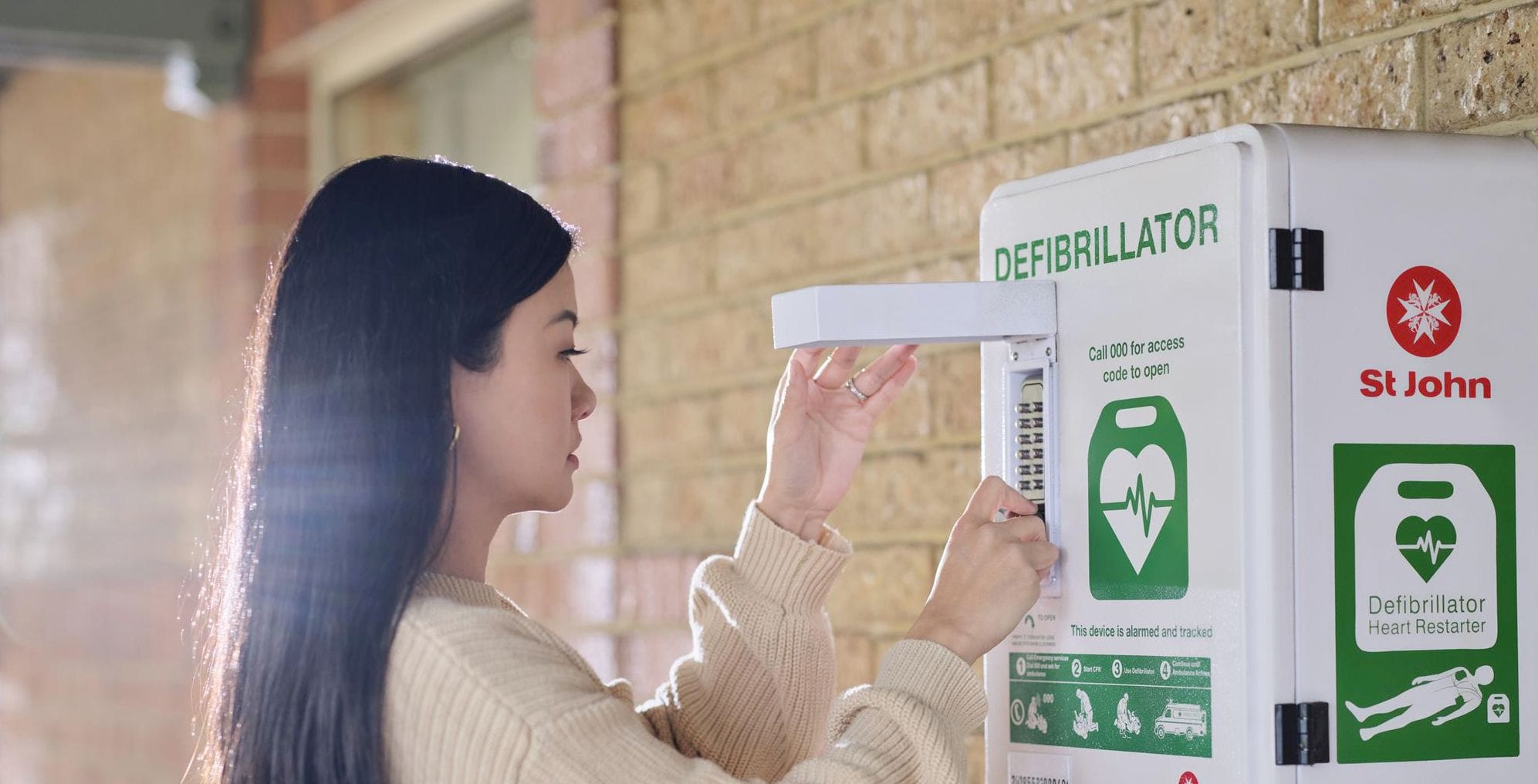Save a life by being the strongest link in St John WA’s Chain of Survival
- Only one in 10 people survive sudden cardiac arrest. Yet nine more lives could be saved with CALL. PUSH. SHOCK.
- CALL. PUSH. SHOCK make up the first three vital steps in the Chain of Survival when treating out-of-hospital cardiac arrest.
- St John WA and the Council of Ambulance Authorities (CAA) are joining forces to raise awareness for world Restart a Heart Day, Sunday 16 October.
This year, 30,000 Australians and New Zealanders will die from a sudden cardiac arrest.
Sudden cardiac arrest is a medical emergency when someone is not responding and not breathing normally. Only one in 10 people survive sudden cardiac arrest.
Yet more lives can be saved if bystanders know first aid and/or do not feel apprehensive about delivering the three key steps when providing first aid in a cardiac arrest, which are CALL. PUSH. SHOCK.
CALL Triple Zero (000) for help, start bystander CPR (PUSH) and SHOCK using a publicly available Automated External Defibrillator (AED) while waiting for the ambulance to arrive.
Those three steps form the first vital links in the Chain of Survival, with ambulance and hospital care making up the five steps in total.
On world Restart a Heart Day, Sunday 16 October, St John WA and the Council of Ambulance Authorities (CAA) are joining forces to raise awareness about the Chain of Survival for out-of-hospital cardiac arrest.
With 80 per cent of out-of-hospital cardiac arrests occurring in the home, St John WA Executive Director Aaron Crowther is urging everyone to undertake vital CPR and AED training to potentially save their loved-one’s life.

“Every year we train thousands of students to understand how to administer CPR. With this new campaign, we are highlighting the links in the Chain of Survival, so people feel confident to act in supporting someone who has had an out-of-hospital cardiac arrest,” Mr Crowther said.
“For every one minute of delay when a casualty needs a defibrillator, the chances of survival go down by 10 per cent. Taking action in the early stages is critically important and can make a big difference.”
CAA CEO, David Waters, wants the community to play their part to change the horrifying statistics.
“Having a bystander or family member willing and confident to start CPR can mean the difference between life and death,” he said.
A cardiac arrest can strike anyone, at any time, at any age, anywhere. It can happen to a toddler in bed, a 22-year-old athlete on a sports field, a hardworking middle-aged mum at home, or a grandfather enjoying his retirement. These are all real Australian cases of cardiac arrest.
Restart A Heart Day has been growing in strength since its launch in Australia and New Zealand in 2017, with more than 50,000 members of the public receiving First Aid training in CPR and AED skills since the campaign started.
In the past year, St John WA trained 340,000 West Australians in first aid, including school children.
To help reach more of the community on the importance of CPR, Restart A Heart has launched a new social media challenge called, #9for9challenge. To pay respect to the nine out of 10 people who don’t survive cardiac arrest, social media users are being asked to film themselves performing nine compressions on a pillow, teddy or stuffed toy and tag nine friends to take part.
Remember to CALL. PUSH. SHOCK to save a life.
For more information on Restart a Heart, please visit: https://restartaheart.net/
To learn more about first aid visit: https://stjohnwa.com.au/first-aid-training
